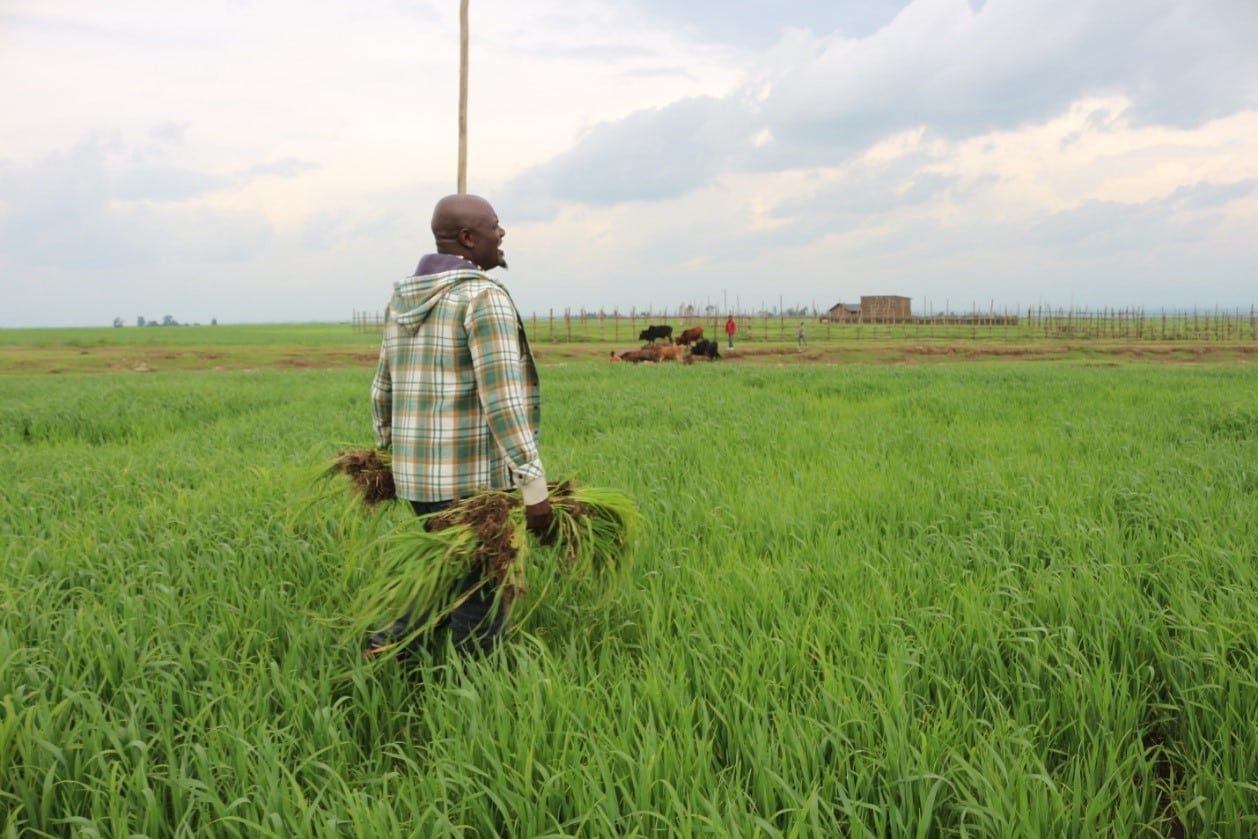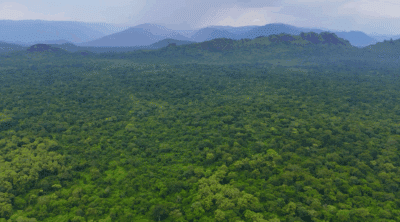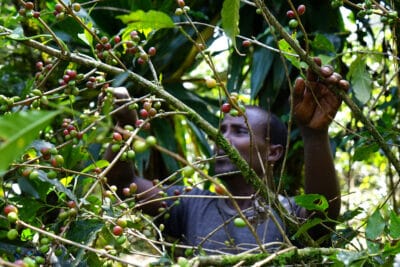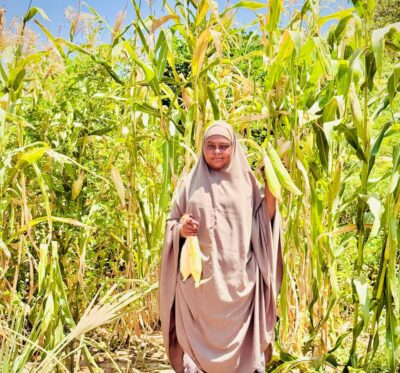Stories
Ethiopia
12 September 2025
From degraded soils to productive farms
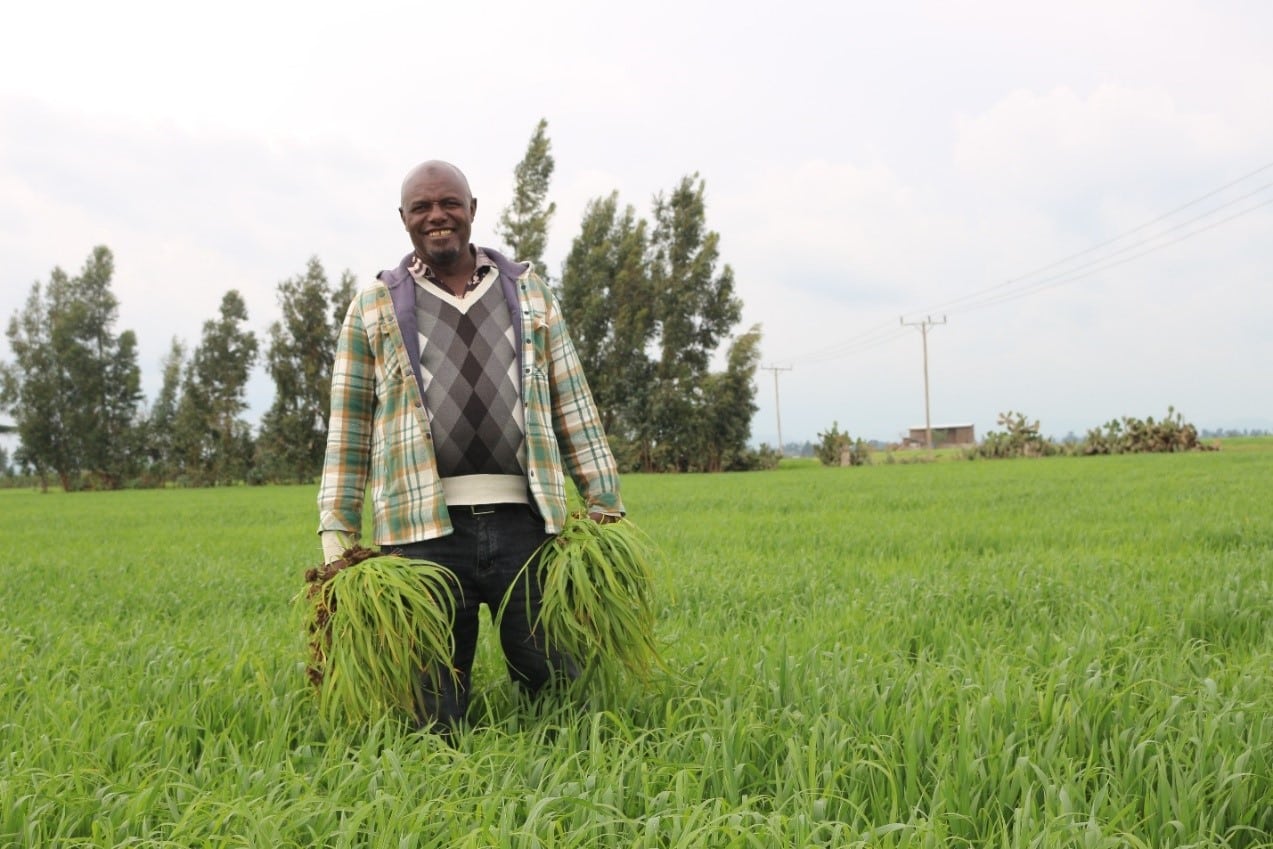
For many years Aliy Kedir Robe, a farmer from Woltie Debara Bubura Kebele in Gedeb Asasa District of Ethiopia, worked hard on his land, trying to secure better harvests. However, the productivity of his land continued to decline.
An invisible problem
What he hadn’t realised was that his land was becoming acidic: the result of continuous monocropping, leaching and the inappropriate use of fertilisers year after year.
Increased soil acidity is a problem for farmers. When acidity levels rise, nutrients become locked in the soil, unavailable to crops even when farmers apply fertiliser. The result is poor plant growth and low yields.
“I was unaware that it was becoming acidic; I only noticed that the production volume was consistently decreasing and that wild weeds were proliferating every wet season instead of the crops I had sown."

Aliy Kedir Robe
Wheat farmer
“Although the wheat seedlings were germinating, they were weak, yellowish and produced a low yield”, recalls Aliy, “I was applying manure and cow dung, but the amount was insufficient to rejuvenate the soil.”
Application of lime, a natural, acid-neutralising soil conditioner derived from limestone, is an effective way to counter rising acidity in the soil. However, like many farmers, Aliy was skeptical:
“At one point, the Gedeba Assasa District Agriculture Office recommended lime treatment for farmers,” he admits. “However, I and the other farmers were not convinced and instead believed that lime would further diminish soil fertility. This misconception still persists among many farmers in the vicinity.”
Diseases also posed serious challenges, particularly ‘wag’, a common fungal disease that affects cereal crops. Aliy explains: “wag indiscriminately affected my farmland a year prior, resulting in significantly low production. Although I used fungicide, I was not knowledgeable about the proper use of agrochemicals.”
A remedy revealed
With support from the Building a Resilient Wheat Value Chain and Empowering Smallholder Farmers in Oromia (BRES) project, things are changing now.
BRES is working to increase food security and incomes for farmers in Aliy’s area by improving the sustainable production, productivity and marketing of wheat. The AGRA-funded project is being implemented by partners including Farm Africa, in collaboration with a wide range of government agencies, universities and institutions.
“The BRES project provided training on climate-smart agriculture (CSA), soil fertility, agrochemical usage and the necessary procedures, along with ongoing technical support from the field team. Through this I became aware that my soil fertility was continuously declining due to my farming practices."

Aliy Kedir Robe
Wheat farmer
With the assistance of Farm Africa, the Agriculture Office of Gedeb Asasa district carried out a soil test, confirming that the soil was significantly acidic. Consequently, lime treatment was recommended, and the suggestion was accepted.
Aliy Kedir explains that, following the identification of the soil’s high acidity, the Farm Africa BRES project provided him with 2,400 kg of lime. This lime was applied over a sufficient duration, and he personally planted the Abay, Boru, and Dursa wheat varieties. He intends to utilise agrochemicals to address issues related to fungi, weeds, and other diseases affecting the wheat. Additionally, he has employed labour for weeding.
Aliy’s wheat plantation is now thriving, and he’s optimistic about achieving a substantial yield. He invites close follow-up by the Agriculture Bureau and Farm Africa to monitor the progress of the expanding wheat plantation.
